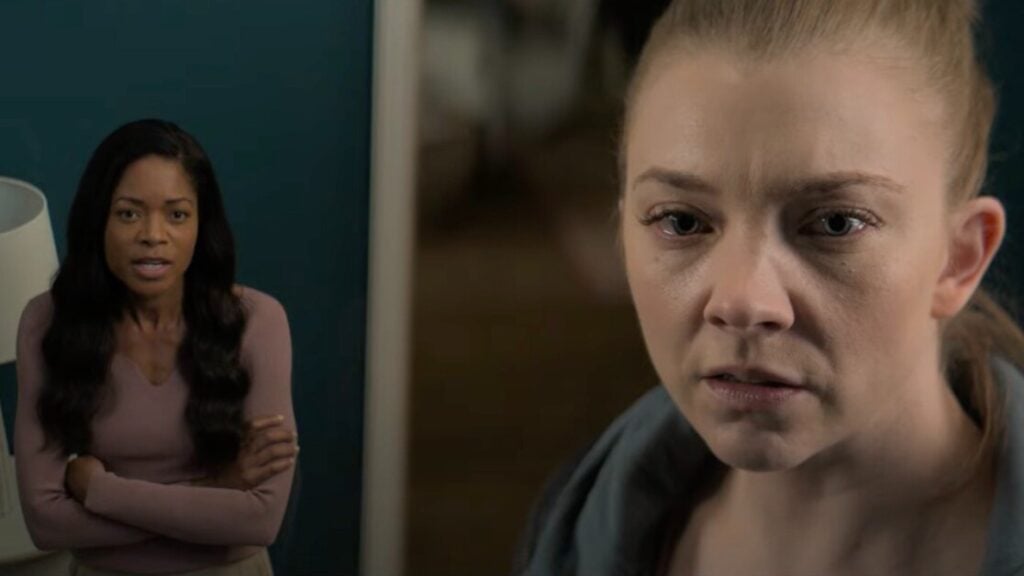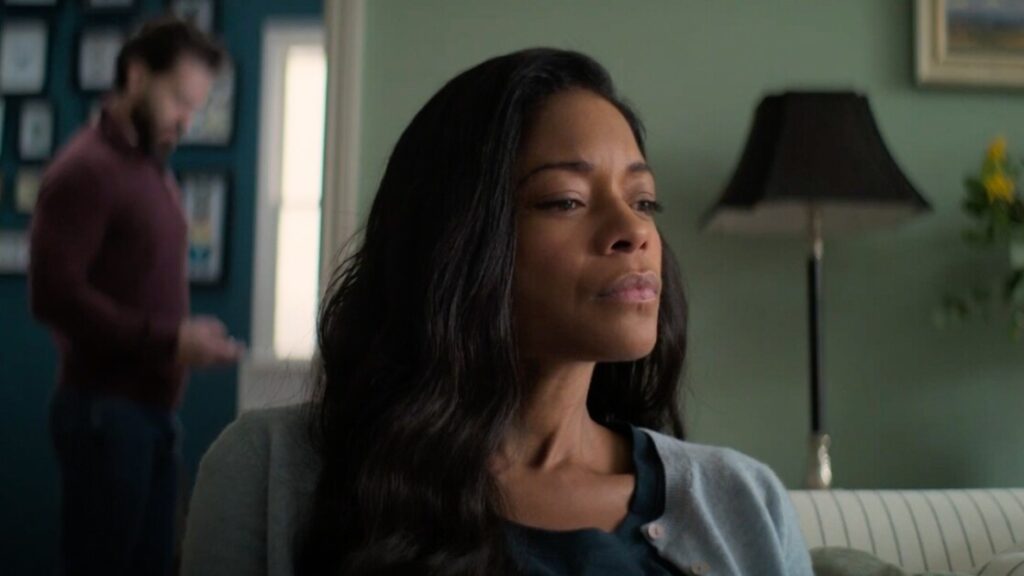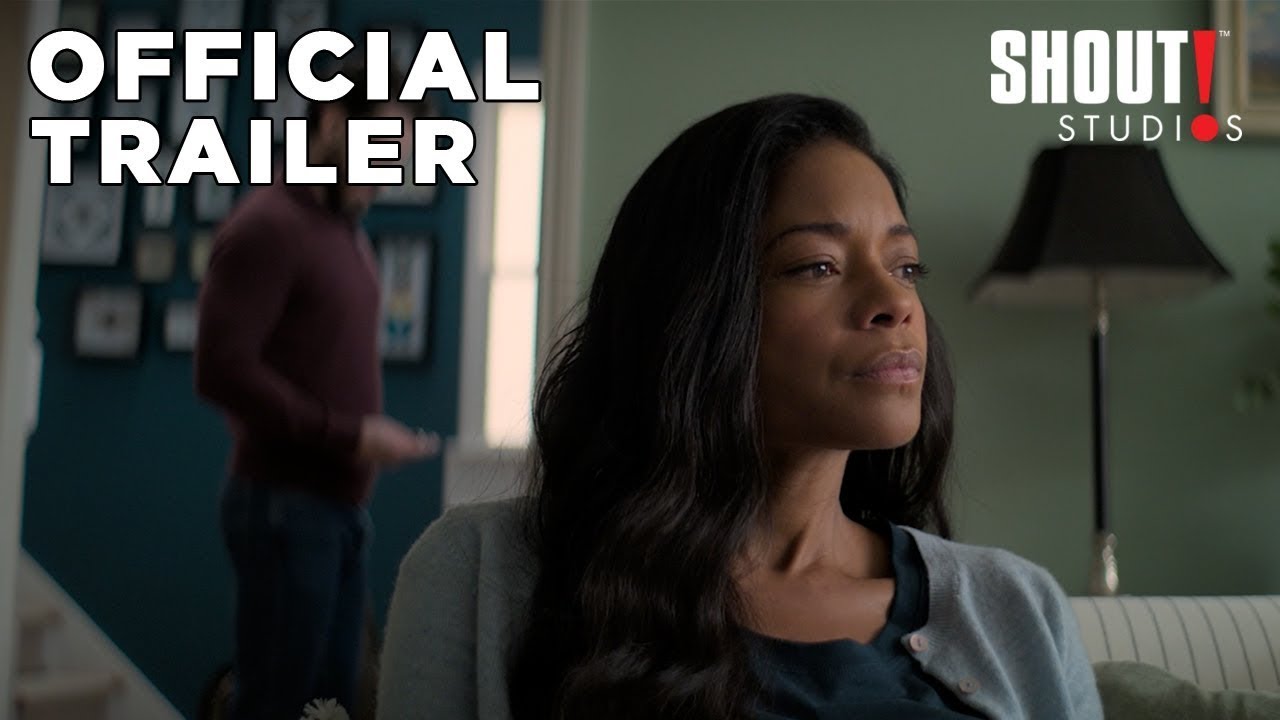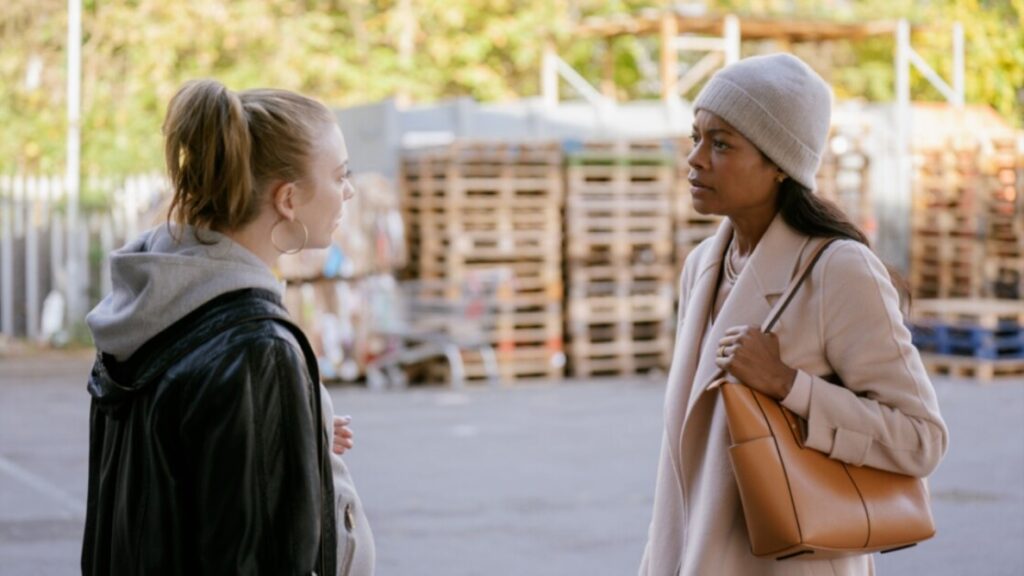What starts as an innocent meet-up between old school friends slowly fades into a thrill ride of secrets, murders and deceit. Nothing is what it seems in The Wasp…unless you’ve seen Morgan Lloyd Malcolm’s play the feature is based on. Ahead of the release of director Guillem Morales’ (Julia’s Eyes, Back Room) latest movie, Geek Vibes Nation spoke to lead actresses Natalie Dormer (Game of Thrones, Penny Dreadful: City of Angels) and Naomie Harris (Black and Blue, The Man Who Fell To Earth) about this psychological game between two strong women.
Geek Vibes Nation (Liselotte Vanophem): Hi, Natalie and Naomie. How are you?
Both: Hi. We’re fine. Thank you!
GVN: Congratulations on the film. What drew you to the project?
Naomie: I was bullied at school and I feel as though there’s a real issue with bullying in schools. I certainly think that during my era when I was at school, it wasn’t taken seriously enough. I loved the exploration in this film of the lasting legacy of bullying, how it can affect people throughout their lifetime, and how they can be traumatized forever.
Natalie: Like Naomie, I was also severely bullied at school. Maybe that’s an actor’s lot. I knew Morgan Arthur, the writer, as I had read The Wasp many years ago as a play. I was fascinated by the ramifications of childhood trauma.
Both women have to deal with that trauma in this movie. It comes at the hands of different people for the two women, but they both have childhood trauma. I was also curious about the script’s ambivalence towards which woman is right and the power and sympathy swing from one to the other as the film continues, which was interesting.

GVN: There’s so many twists and turns in both the scripts and the sympathy swings. Was there any moment when reading the script that you were like, “Oh, yeah. I know where this is going and then, 2 seconds later, you’re like, oh, okay. I did not expect this.”
Natalie: Yeah. I think Morgan does that on purpose. She’s interested in examining women at their most extreme and their capabilities. Violence between two women is not something you see that often. So, while I can’t speak for Naomie, finding these sorts of two antiheroines effectively pot pressure cooker scenarios is refreshing.
And that’s what I really like about the film. As we said before, the power jumps and sympathy jumps back and forth forces the audience to keep up. And you kind of make some assumptions at your peril watching this. It’s a ride.
Naomie: In answer to your question about whether there were any moments I saw coming, there really weren’t. And that’s what I loved about the script. I was gripped by the fact that it went in directions I didn’t foresee at all.
I loved the actual depth of these characters. It’s rare for a woman to be presented with fully rounded, fully fleshed-out, multifaceted and multidimensional women who also don’t have to be likeable because so often, as a woman, it seems your value is based on how amiable you are. And that wasn’t the case at all in this script. The women get to explore all sides of themselves, and that was refreshing.
Natalie: That’s the beauty of the script. As long as Naomie and I were faithful to the text, the layers peeled themselves back like an onion. The text did the work for us. It sounds cliche, but our job is to find the truth at any given moment. Then, the contradictions come naturally as the film unfolds, keeping people on their toes.

GVN: The movie isn’t bloody, certainly not at the beginning, but there’s a lot of dialogue. Does a script like that allow you to bounce off each other a lot more and elevate the words and the dialogue even more than, for example, when the script would be much more about big stunts and special effects?
Natalie: Ultimately, it’s a play. That’s the nature of the writing because it’s, 1st and foremost, a play. It’s a screenplay that’s come from a play in origin. We just found each other’s rhythm, didn’t we, Naomie? As an actor, it’s lovely to sink your teeth into that dialogue that dances like that.
Naomie: In answer to your question about physicality versus long monologues when you’re acting, it doesn’t matter. You could have no dialogue, and just exchange looks with somebody. You always have to have this close relationship and mirror each other and be, you know, in the same, inhabiting the same imaginary worlds together and supporting each other in that imaginary world. Otherwise, it doesn’t work.
The Wasp is out now in cinemas courtesy of Shout! Studios. Read our review here.








